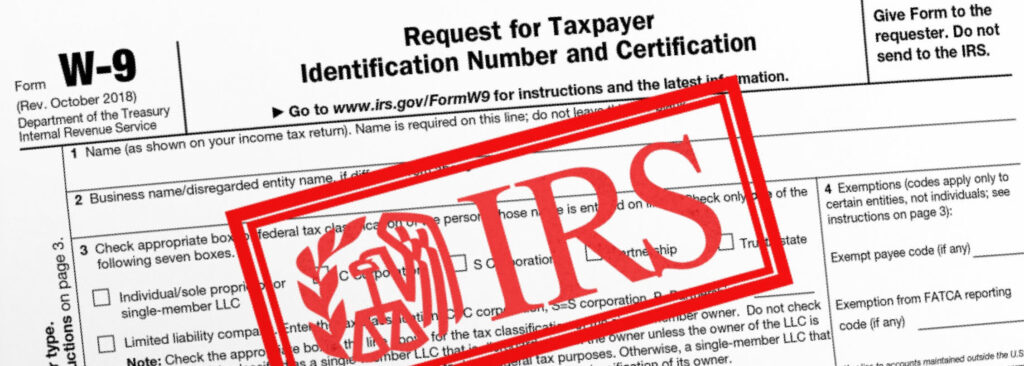Part I – In General / Part II – Financial Cost v. Benefit Analysis
Dear Gillingham CPA, what should “I” be? An S-Corp or an LLC? I heard you can save a bunch of tax by being an S-Corp so what should I do?
Quick answer: If you want to be “aggressive,” dedicate some time to the cause, and possibly find a tax preparer that agrees to being “aggressive” – then ya, you might pick up a few grand or more in savings on a slightly shaky foundation if you are small beans. But… when proper analysis is performed and fees paid for the proper work to accompany the proper mechanics of the entity, you may find that the S-Corp circus is not worth the ride.
If you are willing to deal with all the compliance and want to do things in a compliant and reasonable way that corresponds to judicial precedent – ya, you can still save some money! But is it worth it will depend highly on the individual. Especially in California… it is hard to get substantial and defensible S-Corp tax savings, but it is worth the conversation. Viva tax savings and complications and more fees for us in the business if you want to go down this path.
Entity formation is a common question that we receive and the correct answer is “one size does not fit all.” Any good business advisor – CPA, attorney, or otherwise should answer entity formation questions with “it depends.” There are a lot of variables involved and instead of answering, “well pay us about $1,000 and then I will let you know,” I will give an honest guess at answering the LLC versus S-Corp question in writing.
It is important to understand that this writing is for educational purposes, complete opinion, uses massive assumptions, possibly has outdated tax rates and thresholds and is for illustrative purposes and you should consult both a Certified Public Accountant and an Attorney to address your own situation as there are huge variances in planning that may exist. Inherent in any plan is uncertainty. We cannot predict the future. Proceed with caution, this is not advice.
More resources and ways to support:
Kindle Book: Business Tax Prep & Plan by Accounting Play: Small Business | Individuals | Deductions | Planning <- This covers an introduction to several business entities
On the AccountingPlay blog: Business Taxes Series |Entity Selection
On the Podcast: Entity Selection with local San Francisco law firm, Bend Law
There are a lot of variables that can go into the entity equation and documenting the answers ahead of time can help optimize your advisor time. I break some of these down into mostly legal and then mostly tax related questions below. Ultimately, you want to know why you picked one entity or the other.
The Major S-Corp Issues – Maybe Innocent Until Proven Guilty
The basic S-Corp mechanics involve running payroll in order to save on payroll tax (ironic, but yes, this is how it works). Let’s say the business is profitable at $100,000 ($100K) as a sole member LLC. In this case 100% is subject to both income tax and self-employment tax – which is approximately 15% in our example… So income tax you are gonna pay either way. The S-Corp scheme involves taking this same $100K profit and making some of it payroll and some of it ordinary income… How does this kinda work?
So, for simplicity, the S-Corp owner pays like 5K a month “fair wage” so there is $60K wage and $40K ordinary income. And like magic, on the $40K times around 15% = “like $6K tax savings” brilliant, maybe. Expect this pitch from a slightly shady tax preparer in Las Vegas. It is important to note that different professional designations have different insurance and professional standards. Think… established insured contractor versus craigslist dude. Sometimes the dude is the answer, sometimes not.
Back to the issue of the compensation versus ordinary income bifurcation. The #1 issue is determining whether the $60K is “fair” which is very difficult or impossible really. The fair compensation decision is one based off of court precedent and educated opinion. So long as the position is not frivolous or generally egregious (non-technical terms) then you have a starting point.
If the $60K comp position is justifiable, then there is an extra tax return to file, planning, filing headaches, and rules… Does that cost $2K? Ya, probably if done right. So now you are thinking it saves like $4K ($6K savings – $2K compliance fees). Not a terrible idea. But this business is likely a solo consultant working a lot of hours and this type of compensation is likely not appropriate. What about state tax? CA will apply additional taxes as well and the headache of accounting and payroll is greater on a monthly basis. IF… there is a scenario similar to the above and fair comp is not that high, well, let’s consider it. BUT…
With higher income taxpayers, that, say, should have fair comp of $10,000 a month or higher… instead of saving 15% or so… end up saving more like 3%… but then also might have 1.5% additional California fees… so saving 1.5% net on maybe $200K … well maybe that is $3K savings, but then less payroll and additional compliance costs… hmmm… BUT…
When you are saving on Social Security taxes you are also paying less into Social Security… which means something in the long term. This is worthy of mention, especially for older people closer to retirement.
SO! If you are feeling kinda shady and entitled to a very low fair comp (under 10K a month) and want to hack it together with a low cost payroll company and tax prep shop… It is possible to pick up, who knows $5,000 of savings built upon a shaky foundation. People do, do, this.
Checkout this CPA who profited around $200K but figured he was only worth about $2K a month… A fantastic analysis and S-Corp fair comp reading by, The Tax Advisor. This $24K a year salary from the sole-owner of a firm grossing in the $2 Million range was deemed, well, wrong… Interestingly though, seems like the court found a salary in the $91K range somewhat reasonable. Hmmmm… maybe there is some room on what is and is not reasonable…
Quick Pros and Cons of Sole Member LLC v. S-Corp
Sole Member LLC
Pro: offers certain degrees of legal protection, may be filed with an individual tax return, client may take “draws” so money in and out of the business is more fluent, similar rules to sole-proprietors makes after the fact deductions easier, more friendly for home office, easier health insurance deduction, no balance sheet requirement for federal returns
Con: no special tax savings loophole
Sole Owner S-Corp
Pro: offers certain degrees of legal protection, allows for some potential savings of payroll taxes, may provide some benefit to owner with potential tax credits relating to greater R&D credits or domestic productivities deduction (highly dependent on the business)
Con: additional tax return must be filed, payroll tax returns needed and related compliance, generally more time consuming, likely needs a balance sheet – better quality and current accounting, greater complexity of tax rules relating to healthcare, retirement plans in general, home office deductions
Good questions to answer on the mostly legal side
- What type of legal protection are you looking for?
- What are your current or assets that you may be looking to protect?
- What other mechanisms like business practices, outsourced HR function, solid contracts and insurance are in place to protect you?
- What type of succession plans will there be, such as gifting or selling the business?
- How will the business be funded?
- How many people are involved in the business as possible owners and employees?
- Any plans for equity compensation plans?
- How do you plan on taking care of annual legal compliance?
- Any need or advantage to be incorporated in another state?
- Is a separate legal entity even worthwhile at this point?
Good questions to answer on the mostly tax and accounting side
- What are first year profits and projected profits looking like?
- What are first year profits and projected revenue looking like?
- What is the level of accounting accuracy that will be maintained?
- What type of budget is allocated to outside assistance?
- Is the owner more interested in simplicity or complication that may save on taxes?
- Can the owner follow rules and be ahead of schedule?
- Is there already an existing separate legal entity in place?
- How will employees be compensated?
- What is the state of the current accounting and legal entity?
- What are potential exits for the founder?
Common Scenarios and Quick Guesses
- New business one person. “I am starting up a business, want an entity, and have no idea if this thing is actually gonna work.”
- New business two people. “We are like a total team and gonna win super big and make tons of money so I want an S-Corp.”
- Existing business, small beans. “My profit is about $100,000 a year or less and hate paying tax!”
- Existing business, bigger beans. “My profit is over $150,000 on my prior couple years tax return and this year is coming in closer to $250,000”
- Not covered… Businesses with profit in excess of $1 Mil, over 10 employees, estate planning, subsidiaries and generally non-micro businesses (Generally I refer to micro businesses as annual profit or startup burn of a million or less)
- Not covered… Highly technical businesses that may have unique benefits of Domestic Production Activities Deduction and / or Research and Development credit as it relates to compensation of officer(s)
Generally an ideal candidate for an S-Corp business, in my opinion comprises some or all of the following characteristics: one owner, consistent profits of over $100,000 a year, budget for tax and accounting compliance, ahead of schedule on accounting compliance, has time budget for additional relative complication as compared to different entities.
Step 1 – Rule out what is simply not possible
If you want to do equity comp, the likely only entity that will realistically work is a C-corp. If you need flexible equity investment the S-Corp is not gonna work so well. If you have foreign shareholders, some entities will not be available to you. Gonna have hundreds of investors, well, that can also take some options off the table. Checkout recommended reading for these details. Otherwise we are assuming that we are solo business owners deciding between an S-Corp and a sole member LLC.
What is the primary appeal of the S-Corp entity anyway?
The S-Corp structure essentially allows a business owner to save on payroll tax. Since the IRS only gives general guidance as to how much a taxpayer is actually entitled to save themselves tax, it is an are often abused by taxpayers self-preparing returns, as well as qualified professionals happy to “help” clients save money without proper compliance / analysis of the situation in order to effectively increase fees. In other words, there are slightly shady and semi-negligent professionals happy to increase their fees and lower the overall tax bill for clients. Seems like a win, win, in the short term. Long-term, however, audits may reverse much of the supposed benefits. Also common with such shade-sters is a generally poor quality of accounting support which may give initial tax benefits by cutting corners, but neglect more legitimate tax savings positions. Generally such a direction of cutting corners can save the client money, but is possible that the position is not proper.
The San Francisco, California Analysis in General
Let’s take a look at the most common scenarios by micro-business quantity and get some practical thinking going. All legal entities have costs of human sweat equity hours, taxes typically (local and state), legal fees, and accounting complexity. So let’s try and answer the basics.
More detail in the Business Tax Prep and Plan Book.
Addressing A: New business one person. “I am starting up a business, want an entity, and have no idea if this thing is actually gonna work.”
So you have established that you need a business entity. Perhaps you are hiring outside help, or have significant assets to protect, or you cannot secure that big government contract absent of a separate legal entity. Without knowing if there is going to be much profit and corresponding money to be saved via an S-Corp versus a sole member LLC, why sign yourself up for the more costly entity – El S-Corp? El sole member LLC is going to be easier and then consider converting to S-Corp when you are a better fit.
Addressing B: New business two people. “We are like a total team and gonna win super big and make tons of money so I want an S-Corp.”
Generally speaking, S-Corp management is significantly difficult with more than one person. S-Corporations have one share of stock and limited in quantity of investment. Shareholders, therefore, receive a corresponding percentage of profit or loss income activity – regardless of effort. Unless the structure is for a family run business that might have estate plan implications, it is just not an easy thing to work with more than one person. The B scenario is a combination of uncertain earnings and more than one person involved. The chance, IMHO that this works out well and warrants potential tax savings net of hourly and financial cost is highly unlikely.
Addressing C: Existing business, small beans. “My profit is about $100,000 a year or less and hate paying tax!”
Well… If you are super cheap about your accounting and thrive on self-managing payroll and run a risk of not fairly compensating yourself, heck, you might be able to save some money in raw dollar amount terms. In general though, being fully compliant, at the $100K level it is hard to justify the headache unless there is a unique blend of circumstances. ***The net savings will be heavily dependent on the nature of the business. See what the IRS has to say and the highly respected (in my book) “The Tax Advisor” as it relates to compensation. Let’s just say there is a big difference in someone who performs all of the work as an individual consultant with no employees profiting $100,000 on $150,000 of revenue – versus say – an app company with $500,000 revenue, outsourced staff and limited hours of involvement by the solo owner… Much different. This analysis is a key consideration and outside the scope of this article.
Addressing D: Existing business, bigger beans. “My profit is over $150,000 on my prior couple years tax return and this year is coming in closer to $250,000”
Let’s talk and run the numbers…
In Semi-Conclusion
As I see it the S-Corp amounts to a common loophole in the tax code. It is an easy thing to discuss as a great tax saver; however, I feel that a proper analysis must be performed. Be cautious of tax preparers that want to fit you into the one size fits all S-Corp box. Regardless of tax preparer – the tax payer also signs to certify the return. Paying less payroll tax typically has short-term savings but can reduce the amount paid into government benefit programs. No free lunches here, especially with the government. Please join us for the next series where we perform an actual analysis of cost versus benefit of becoming a sole member S-Corp, with fair compensation in excess of $10,000 a month.



